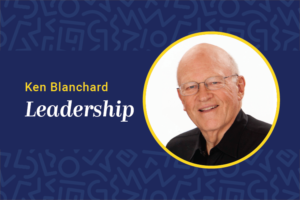
 One of the most invigorating experiences I’ve had in the past couple of years has been my partnership with Claire Diaz-Ortiz. A former Twitter vice president in her early thirties, Claire has taught me a great deal about the business of social networking — and I’ve helped her learn a few things about the business of publishing. Ours is truly a cross-generational mentoring relationship. This fall HarperCollins will publish our new book, “One Minute Mentoring.”
One of the most invigorating experiences I’ve had in the past couple of years has been my partnership with Claire Diaz-Ortiz. A former Twitter vice president in her early thirties, Claire has taught me a great deal about the business of social networking — and I’ve helped her learn a few things about the business of publishing. Ours is truly a cross-generational mentoring relationship. This fall HarperCollins will publish our new book, “One Minute Mentoring.”
Mentoring has become a hot topic in recent years, and it’s one that’s always been close to my heart. Yet despite growing interest, mentoring is still not a common practice. We’d like to change that.
Our research has found that while people like the idea of mentoring, they encounter predictable obstacles when taking that first step. Many don’t know how to find a mentor. Then, many people aren’t sure how to work with a mentor. Even in organizations with formal mentoring programs, people often don’t think they have time to get involved in a mentoring relationship.
This is a shame on two levels. First, people are missing out on the opportunity to take big leaps forward in their growth and development. Second, organizations are missing out on a cost-effective way to assure that knowledge and skills are exchanged between one generation and another.
The first hurdle to mentoring is lack of commitment. Once you set your intention to find a mentor, you become more open to potential mentoring partnerships all around you. You may find a mentor through company programs and professional associations. Or you may develop mentoring partnerships with former supervisors, college alumni, teachers, neighbors, friends, family and colleagues.
But once opportunities present themselves, how do you know a person is the right mentor for you? Keep in mind there are two aspects of working with someone — essence and form. Essence is all about sharing heart-to-heart and finding common values. Form is about structure — the logistics of how you plan to work together. In my experience, jumping to form before exploring essence seldom works out.
I learned this early in my career, a couple of years after “The One Minute Manager” was released. My publisher suggested I partner with a well-known motivational speaker to write a book about the power of positive management. I’d been a longtime admirer of this speaker’s work, so I was excited about the prospect of writing a book with him. But during my first meeting with this celebrity, all he could talk about was the form aspect of our relationship — who would do what, what the royalty split would be, etc. I decided to pass on that opportunity.
That’s when my publisher suggested I write a book with Norman Vincent Peale. Norman had written “The Power of Positive Thinking,” a book my mother had been reading for years. “Norman Vincent Peale!” I said. “Is he still alive?”
“Not only is he alive, he’s fabulous!” said my publisher.
So I met with Norman and his wife Ruth in New York City. At the time Norman was 86, and I was 45. Talk about cross-generational mentoring. We hit it off immediately. We talked about all kinds of things — our passions, inspirations, families. The subject of business didn’t come up until the very end of our time together.
Norman was the writer-philosopher, and his wife Ruth was the “lady boss” who handled the business side of things. At the end of the evening Norman turned to his wife and asked the ultimate essence question, “Ruth, shall we work on this book with Ken?”
“Yes, on one condition,” Ruth said.
“What’s that?” he asked.
“That whenever we meet, he brings his wife Margie, and the four of us work together.”
We all became friends, and Norman became one of the most influential mentors in my life. He taught me life-changing lessons about values — and I taught him about writing parables. We remained close until Norman passed away at 95, and Ruth passed away at 102.
Cross-generational mentoring can change your life. In the old days people said that a mentor was someone whose “hindsight can be your foresight.” In the fast-paced 21st century a mentor can be anyone with subject matter expertise, regardless of their age. Just make sure that before you jump into a mentoring partnership on the basis of a person’s expertise, you feel compatible with their essence as well.
Ken Blanchard is chief spiritual officer of The Ken Blanchard Cos. and co-author of “Collaboration Begins with You: Be a Silo Buster.” Comment below or email editor@CLOmedia.com.




